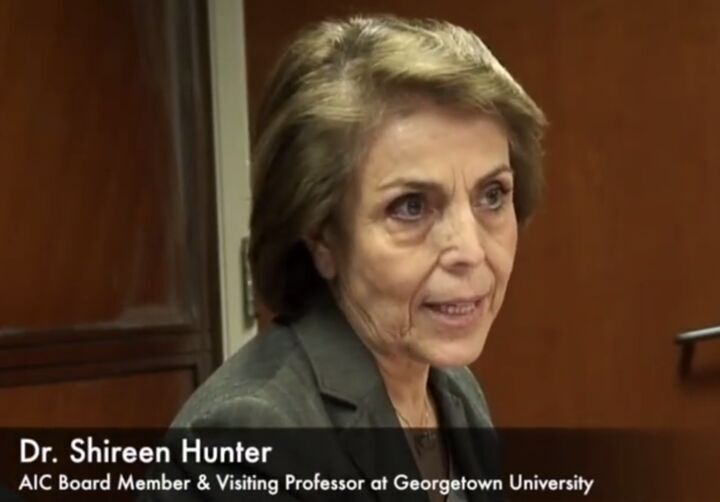
TABNAK –Shireen Tahmaasb Hunter, a professor of political science at Georgetown University, tells that President Pezeshkian's speech at the UN's General Assembly was positive; it did not break any new ground.
She adds, “He also reiterated Iran's long-standing positions on Middle East issues, notably the Palestinian issue and Lebanon, positions which are a main cause of tension in Iran-West relations.”
Following is the text of the interview:
Q: What is your assessment of President Pezeshkian's speech at the UN's General Assembly?
A: President Pezeshkian's speech at the UN's General Assembly was typical of such speeches. In such speeches, officials mostly focus on generalities and emphasize their countries' commitment to peace and other lofty ideas. President Pezeshkian, too, stated that Iran wants peace and dialogue with all countries. However, he did not make any major policy announcements, especially as far as relations with the US and the West are concerned. He also reiterated Iran's long-standing positions on Middle East issues, notably the Palestinian issue and Lebanon, positions which are a main cause of tension in Iran-West relations. Therefore, although, overall the speech was positive, it did not break any new ground.
Q: In his speech, Pezeshkian emphasized on solving regional issues through regional states and stated that as a result of hostilities and interference of countries outside the region, money for the purchase of weapons by the countries of the region are wasted. According to him, security order in the region is desirable when the interests of all countries in the region are secured. What is your assessment of these words?
A: The view that maintains regional issues in the Middle East. West Asia should be resolved by regional countries is theoretically correct. However, it is unrealistic. Firstly, regional countries are divided into many factors, including ethnic, sectarian and ideological. They are also involved in historical and more recent rivalries. For instance, Iran's Arab neighbors, plus Turkey is intensely competitive with Iran. Secondly, because of the region's strategic importance, external actors, including the great powers are keenly interested in the region's developments. In fact, some regional states use the great powers to advance their own ambitions. Persian Gulf Arab states, Turkey, Israel, and even Azerbaijan use their great power connections to advance their particular ambitions. In short, this statement reflects good intentions, but is highly unrealistic.
Q: Pezeshkian also emphasized on eliminating the roots of poverty and injustice, which is a reminder of eliminating structural violence in the perspective of positive peace. How important is this look?
A: The question of economic and other disparities among advanced nations and the rest of the world has been on the United Nations' agenda since its foundation. During the Cold War, both the West and the USSR competed in helping the less developed states. In the 1970s, the so-called North-South dialogue was started with the aim of reforming the international economic order and helping the less advanced states. However, since the end of the Cold War, these issues have lost their saliency. In short, such statements don't have any practical significance.
Q: In his speech, Pezeshkian talked about Iran's readiness for nuclear negotiations. On the other hand, Rafael Grossi stated that he will travel to Iran next month and announced that the new government of Iran has shown signs of interaction. Will we witness nuclear negotiations?
A: I doubt that there would be any movement in Iran's nuclear dossier until the American presidential elections are over. At the moment, both democrats and republicans are competing to show which one is the stronger supporter of Israel. Any positive statement or action regarding Iran by either Biden, Harris or Trump would be used to undermine them by their rivals. In general, I don't believe that the nuclear issues and thus the sanctions question could be resolved in isolation from other points of conflict between Iran and the US.